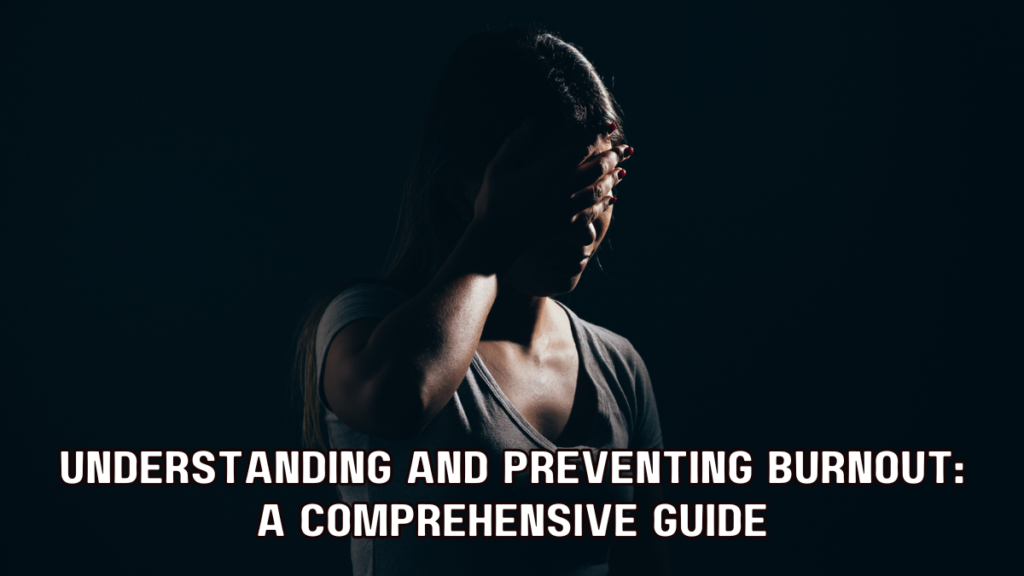Introduction:
In today’s fast-paced world, the pressure to excel in various aspects of life can be overwhelming. Whether it’s meeting work deadlines, managing personal commitments, or navigating societal expectations, the constant juggling act can take its toll on our mental and physical well-being. One common consequence of this relentless stress is burnout.
What is Burnout?

Burnout is more than just feeling tired or stressed out. It’s a state of emotional, physical, and mental exhaustion caused by prolonged exposure to high levels of stress, often in environments where individuals feel overwhelmed, unappreciated, or unsupported. Burnout can manifest differently in each person but typically involves feelings of cynicism, detachment, and a sense of inefficacy.
Recognizing the Signs
Recognizing the signs of burnout is crucial for preventing it from escalating. Some common signs include:
Chronic fatigue:

Feeling exhausted, both physically and emotionally, despite getting adequate rest.
Decreased performance:
Struggling to concentrate, experiencing memory problems, or having difficulty making decisions.
Cynicism and detachment:
Feeling emotionally detached from work or personal relationships, experiencing negative attitudes towards tasks or people.
Physical symptoms:
Headaches, muscle tension, gastrointestinal issues, or frequent illnesses due to weakened immunity.
Loss of enjoyment:
Losing interest in activities you once enjoyed, feeling disillusioned or disengaged.
Preventing Burnout
Preventing burnout requires a proactive approach to managing stress and prioritizing self-care. Here are some strategies to consider:
Set Boundaries:
Establish clear boundaries between work and personal life. Avoid overcommitting and learn to say no when necessary.
Practice Mindfulness:
Incorporate mindfulness practices into your daily routine, such as meditation, deep breathing exercises, or yoga, to reduce stress and increase self-awareness.
Take Breaks:
Schedule regular breaks throughout the day to rest and recharge. Step away from screens, go for a walk, or engage in activities that bring you joy.
Seek Support:
Reach out to friends, family members, or colleagues for emotional support. Don’t hesitate to seek professional help if you’re struggling to cope.
Prioritize Self-Care:
Make time for activities that nourish your mind, body, and soul, whether it’s exercise, hobbies, or spending time with loved ones.
Manage Workload:
Break tasks into smaller, manageable steps, prioritize tasks based on urgency and importance, and delegate responsibilities when possible.
Cultivate Positive Relationships:
Surround yourself with supportive individuals who uplift and encourage you. Foster meaningful connections both at work and in your personal life.
Conclusion:
Burnout is a pervasive issue in today’s society, but it’s not inevitable. By recognizing the signs, prioritizing self-care, and adopting healthy coping strategies, you can prevent burnout and cultivate a greater sense of well-being and fulfillment in your life. Remember, taking care of yourself isn’t selfish—it’s essential for maintaining your health and happiness in the long run.

